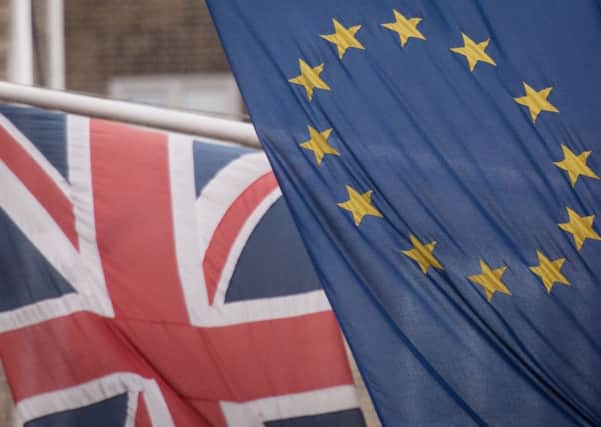Brexit could end in a difficult clash or a friendly separation


The United Kingdom has yet to decide when to confirm to the European Union that the decision has been made.
Then the shape of an exit deal must be determined.
The tensions in making a deal have not yet fully surfaced. Some EU leaders seem unwilling to compromise with the UK. If the UK wants to leave, they would just let it happen.
Advertisement
Hide AdAdvertisement
Hide AdThe consequence could be possible distortion of trade in goods and services between the UK and the EU, as well as a series of breaks in mutual agreements on things such as health care, trading standards, and extradition of offenders.
What Brexit means is still uncertain. The next Conservative prime minister will be a powerful influence.
Will the EU act so that Brexit ‘slams the door’ and we face a similar European response?
Alternatively, a new UK prime minister who sees Brexit as a divorce between friendly neighbouring countries may be able to get an arrangement where the UK takes control of its own laws and brings back to the UK its own authority while retaining a friendly co-operative arrangement with mutual economic benefits.
Advertisement
Hide AdAdvertisement
Hide AdThe Conservative candidate for the PM job likely to minimise hostility and maintain constructive co-operation looks like Theresa May.
Constructive co-operation would mean an effort to minimise the disruption to trade and payments arrangements. It might be modelled on the Norwegian precedent or formally linked to the European Economic Area.
Northern Ireland is not so vulnerable to any conditions which keep doors open for EU internal immigration. However, the new UK government might get an easier deal where EU immigration was subject to a clause allowing a claim of ‘force majeure’ if set limits were exceeded.
If the new UK government adopts a friendly neighbour policy (and if the EU accepts that new reality), the risks of tensions between the UK and the Irish Republic can be minimised or become negligible.
Advertisement
Hide AdAdvertisement
Hide AdMaintaining friendly neighbour policies has further implications for Northern Ireland. Although being outside the EU, we could informally agree to maintain common trading standards, following evolving EU rules and maintain rules to avoid unfair competition across UK/EU borders.
In addition, that could mean agreeing to continue to limit State Aids (for inward investment) in line with the inherited rules.
In contrast, if the UK is denied an acceptable friendly divorce from the EU then economic policies and risks change dramatically. A hostile UK/EU relationship would be tense and, on this island, relations north-south could be damaged.
The free movement of people between UK and Ireland need not be questioned. However, trade relations questions are less easy.
Advertisement
Hide AdAdvertisement
Hide AdThere would be an obvious search for exceptions, special arrangements, cross-border special zones and inter-government formal and informal co-operation: altogether a more demanding task.
With a major split, to rebuild the economy, Northern Ireland could seek authority to exercise a wide range of new fiscal powers. Even that would not necessarily avoid an unwelcome recession.
Northern Ireland’s interests now need skilled negotiators talking to London, Edinburgh, Dublin and quietly in Brussels.
The danger of an economic border emerging on this island is a hazard to be avoided.
John Simpson is an economist